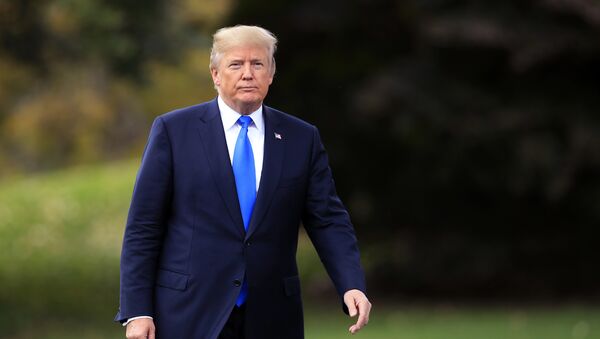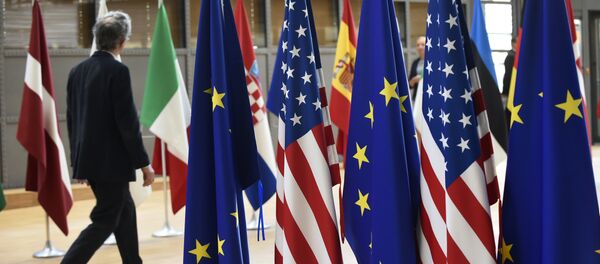Sputnik: Several EU officials, including the German Economy Minister, warned against starting a trade war with the US over tariffs, as it poses great risks. What’s your take on that? What risks are we talking about?
Carl Fey: Basically the basic idea of international trade is trying to take a pie and expand it, to make a bigger pie to have it such that one country specializes in doing one thing and another country specializes in doing something else, depending on what they’re better suited to do. The US ironically has over the years been the world's probably largest proponent of this liberal trade regime, which means not having import tariffs that are very high and not having quotas.
Sputnik: I was listening to President Trump give a speech in Michigan on YouTube over the weekend and he was talking about the story where he went to China about four months ago, and was talking about how easy the Chinese are getting it in terms of trade agreements coming from the US and correspondingly the amount of tax that the United States is paying for Chinese goods is nonsensical. This is his strategy moving forward since he became president, he’s obviously now ratcheting up with the European Union; it doesn't look as though it’s going to go away, does it?
Carl Fey: It does seem to be what Trump is rather set on, that is true, but in fact I think that he probably sees all these measures as negotiating tactics and not actually really that he would really like to have these tariffs or import duties.
Sputnik: Do you believe there will be a fully fledged trade war or will he pull back?
Carl Fey: I’m very hopeful that some sort of compromise will be worked out, but given that the things are starting potentially already on May 1st, it does look like it’s quite possible. It's quite likely, I would say, that the initial phases of this do start, but I just hope it doesn’t escalate too much. One other point of history that’s worth reflecting upon is the attempts of the US to get out of the Great Depression. Many will hopefully remember that the infamous Smoot–Hawley Tariff Act in 1930, which was supposed to help the US by setting up protectionist tariffs.
So I’m hopeful that this is a good negotiation tactic and that somehow there will be some compromises that will come out of this, and perhaps we will be able to continue moving forward with an impressive increase in liberal trade that I think we have seen happen in recent years. I guess the final thing to mention is that actions like what Trump does now are actually much more dangerous than what has ever been at any point in history, and the reason for that is that the world is so interconnected today.
READ MORE: Germany Expects Long-Term EU Exemption From US Tariffs
So we’re talking about the European Union and the US but this affects everyone. You’re talking to me from a Russian radio station, this is important for Russia despite not being in the European Union either because a lot of products are exported from the European Union to Russia so this could raise the cost for some of these products as well, so today whenever two countries or two groups of countries have some sort of dispute, this doesn’t only affect them, we have to realize that it really affects all of the world.
The views and opinions expressed in this article are solely those of the speaker and do not necessarily reflect those of Sputnik.





